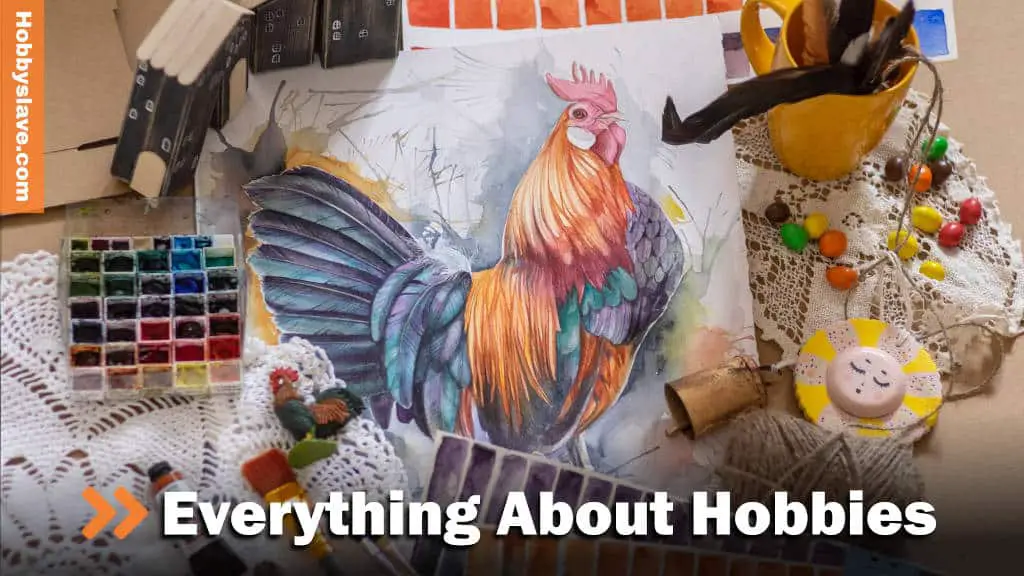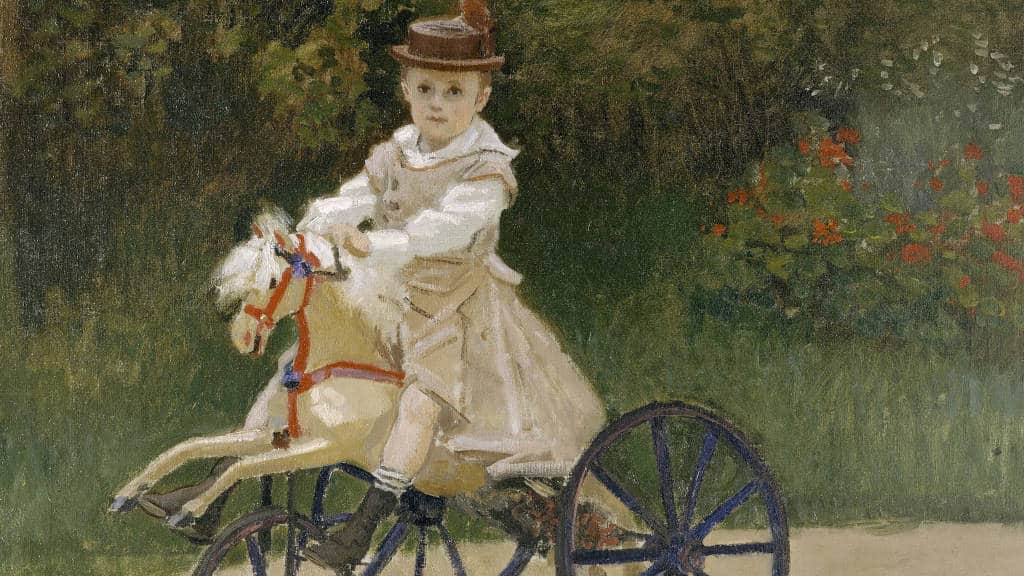What Is a Hobby? All You Need to Know About Hobbies

Hobbies have been around for centuries and you probably have a few yourself. But, how much do you know about hobbies?
In this article, I will summarize all you need to know about hobbies. Some of the popular questions about hobbies that I will explore include:
- What is a hobby?
- Which are the most popular hobbies?
- What is the difference between a hobby and a passion?
- Can you make money from a hobby?
- Should you pay taxes on your hobby?
If you find these questions interesting, stick around for more.
1. Definition of a Hobby
A hobby is an activity that is regularly done for enjoyment, often during someone’s spare time. A hobbyist is someone who engages in a particular hobby. [1]
Here are some key aspects of a hobby.
- It is an activity used to pass time enjoyably (Hence the name pastime).
- It is often done during someone’s free time.
- It is not a main source of income. Although you can earn money from a hobby, the main motivation for engaging in a hobby is not financial gain or profit.
Several other words have the same meaning as a hobby. Some popular synonyms for hobby include avocation, pastime, hobbyhorse, leisure activity, and recreation activity. [2]
2. Origin and History of Hobbies
The term hobby came from the English term “hobbyhorse” which in turn came from the 16th Century English term “hobby” which referred to a small horse. [3]
A hobbyhorse was a popular children’s toy that was made to resemble a small horse and was made of wood or wickerwork. Children would rock on it and pretend to ride a horse. Over time, “To ride a hobbyhorse” came to mean engaging in an activity or interest you enjoy. [3]

Hobbies are as old as human civilization although many of the activities that we now do for leisure were once done for finding food, religious ceremonies, war, or economic activities.
- Hobbies that arose from the need to find food include hunting, fishing, homesteading, gardening, beekeeping, and foraging.
- Hobbies that arose from making products to exchange or sell include pottery, weaving, sewing, leatherwork, and making jewelry.
- Hobbies that arose from religious or spiritual activities include astronomy, astrology, collecting artifacts, and Yoga.
- Hobbies that arose from war or ancient entertainment sports include running, horse racing, fencing, martial arts, and jousting.
As the world became more industrialized and salaried jobs started to dominate, many of these activities became popular hobbies. This enabled people to make use of their free time by engaging in productive activities that could earn them some extra income. [4]
3. Types of Hobbies
There are many ways of categorizing hobbies and there is no standard format. However, people often classify hobbies based on criteria such as:
- The benefit or role the hobby plays, for example, money-making hobbies, creative hobbies, social hobbies, and relaxing hobbies.
- Where the hobby is performed, for example, indoor hobbies and outdoor hobbies.
- The time or period the hobby is performed, for example, winter hobbies, summer hobbies, and night-time hobbies.
- Consuming versus producing hobbies. Hobbies like reading, watching movies, and listening to music are consuming hobbies while hobbies like writing, filming, drawing, and crafting are producing hobbies.
Organizing hobbies into types makes it easier to find hobbies to suit your particular needs. And you can organize your list in a way that makes sense to you.
If you want some ideas for how to organize your hobbies list, check out my hobbies list which is organized into 20 major types based on the criteria above.
4. Examples of Hobbies
There are hundreds if not thousands of hobbies you can choose from and more are being invented every day.

Here are some examples of popular hobbies categorized by type:
- Artistic hobbies like drawing, painting, muraling, and digital art.
- Musical hobbies like playing guitar, songwriting, singing, and rapping.
- Craft hobbies such as weaving, sewing, crocheting, origami, and pottery.
- Entertainment hobbies such as gaming, watching movies, and listening to music.
- Sports hobbies such as tennis, swimming, football, and basketball.
If you want to see more examples of hobbies, I have compiled a huge list of over 1,000 hobbies categorized by type. See my article: Ultimate List of 1,000+ Hobbies.
If you are struggling to come up with ideas on what to do, I suggest you go through the list and write down all the hobbies that you connect with. Break down your list into categories that make sense to you.
5. Popularity of Hobbies
How many people have a hobby?
According to a 2021 survey by Lendingtree, 59% of Americans took on a new hobby during the coronavirus pandemic. [5]
The most popular hobby in the US according to the survey was reading (61% of respondents choose this as a hobby).

Other popular hobbies in the US were:
- Baking or Cooking (36% of respondents)
- Gardening (30%)
- Meditation (29%)
- Writing (26%)
An interesting statistic from the survey is that 48% of the hobbyists were able to make some money from their hobby by turning it into a side hustle. [5]
6. What Is the Difference Between a Hobby and a Passion?
People often use these two terms synonymously, however, they are slightly different.
The main difference between a hobby and passion is in the intensity of emotion and level of commitment toward a particular activity.
When you say that a certain activity is a passion of yours, it means that you have intense feelings and emotions toward that activity. You are also ready to stick with your passion despite the challenges you encounter.
With a hobby, you are less attached and you are not bothered about giving it up when something better comes or you get bored.
Here is an appropriate analogy. A passion can be compared to falling in love.
When you are in love with someone, you want to spend all your time with them. Even when you are not with them, you are thinking about them. A hobby, on the other hand, is like having a friend with whom you meet and have fun when it is convenient.
A hobby can turn into a passion and a passion can cool into a hobby.
7. Why Start a Hobby? The Benefits of a Hobby
A hobby can take a lot of your time and money; therefore, if you are going to pursue a hobby, you need to be sure that the benefits you receive are worth it.
Hobbies have the potential to improve all areas of your life, especially if you pick your hobbies strategically.
Here are some of the big benefits of having hobbies:
- Hobbies help you to pass time in a fun and enjoyable way.
- Hobbies bring friends together.
- Hobbies can help you to become more productive (See The Best Productive Hobbies)
- You can earn a decent side income from your hobbies.
- Hobbies help you to learn valuable skills.
- Hobbies can help you to land a job (See The Best Hobbies for a Resume).
This is just scratching the surface of what hobbies can do for you. If you want to dive deep into the benefits, I have written a detailed article that goes through at least 15 of the most powerful benefits of hobbies.
If you feel like your life is stagnating, I suggest you check out the article for ideas on how you can make an impact on your life and the lives of others.
8. How to Find a Hobby You Will Enjoy
When you start looking for a hobby, you will encounter numerous barriers that will make it difficult for you. You will probably have to go through several hobbies before you finally find one that suits you.
However, there are strategies that you can use that will make this process easier, for example:
- You can leverage your envy to discover what you crave.
- You can examine your habits to uncover hidden needs.
- You can use the bucket list strategy to find out what you really want from life.
I have written an article (How to Find a Hobby You Will Love) that goes through these strategies in detail.
I suggest you read it together with my other article on Why You Can’t Find a Hobby which discusses some of the barriers that you will face when picking up a hobby.
The process of finding a hobby can be challenging but it is important to stick it through because it will teach you so much about yourself.
9. How to Get Started With a Hobby
For you to reap the full benefits of a hobby, you first have to get started.
Starting a hobby is like starting a habit. You may start with a lot of enthusiasm but run out of motivation as you go. Therefore, don’t rely on motivation.
To ensure you have success in pursuing your hobby, you can follow the following steps.
#1. Identify a hobby you think you will enjoy.
If you pick something that you truly enjoy, you are likely to stick with it for the long term.
Make a list of hobbies that will fulfill various roles in your life such as entertainment, relaxation, making a side income, or increasing your creativity.
For more, see How to Find a Hobby and Ultimate Hobbies List.
#2. Create a specific time to do the hobby.
Once you have found a hobby you like, you need to set a specific time for it.
If you are not intentional about planning for your hobby, you might find yourself procrastinating. This is especially true for hobbies that require a bit of effort on your part.
Watch out for barriers that can sink your efforts (See Why You Can’t Find a Hobby)
#3. Carry out projects
Hobbies can get boring if you don’t have an interesting project you are working on. Think of things you have always wanted to do such as:
- Restoring a vintage car.
- Turning your backyard into a resort-like garden.
- Coding an app that helps you to track your friends’ birthdays.
#4. Learn
If you don’t learn new things about your hobby, you will stagnate and eventually lose interest.
The more skilled you are at your hobby, the more you will enjoy it and the more impact you will have.
Here are some great ways to learn.
- Take courses. You can do online or offline classes.
- Volunteer. Volunteering helps you to learn by doing.
- Learn from others. You can join clubs or communities where you can meet others with similar hobbies to you.
10. How to Get Your Kids Interested in a Hobby
Getting your kids interested in hobbies will enable them to start reaping the benefits of hobbies early on in their lives.
However, this might be easier said than done. Chances are that your efforts will be met with disinterest or initial enthusiasm followed by loss of interest.

Here are some strategies you can use to get kids interested in hobbies
#1. Expose them to a variety of activities
You want your kids to explore several activities before they settle on one or two that they like. And even after they settle on a few, you can keep introducing them to a few more hobbies for the sake of variety.
#2. Do it with them
Kids tend to gravitate towards hobbies and activities that their parents also like. Choose hobbies that you can do as a family.
#3. Make it fun
Do not force them to do it otherwise they may start to view it as a chore even if they initially enjoyed it. Look for ways to make it fun and introduce novelty if you sense that they are starting to get bored.
11. Can You Make Money From a Hobby?
If you are going to spend hours on your hobby, you might as well figure out a way to make some money out of it.
There are plenty of people who make a part-time or full-time income from their hobbies.
When you look at how they make money, you discover that there are a couple of methods that are particularly suited for hobbies. You don’t have to reinvent the wheel, just copy what is working for others.
Here are the three main ways to make money with a hobby.
#1. Blogging
This is probably the easiest way to start because the startup costs are low. All you need is hosting, and some free plugins and you are good to go.
Competition in blogging is becoming high, especially in some niches like food, travel, and money so you have to come up with a unique angle that will help you to find your audience.
With blogging, you can make money through display ads, affiliate marketing, and selling products and services.
#2. YouTube

If you don’t enjoy writing and you don’t mind having your face on the internet, then YouTube can be a good choice for you.
YouTube is especially great for visual hobbies such as arts, crafts, travel, or beauty. In such hobbies, people need to see what you are doing.
With YouTube, you can make money through YouTube ads, affiliate marketing, and selling products and services.
#3. Selling your products and services
With blogging and YouTube, it can take some time before you build an audience that is large enough to monetize effectively.
However, you can earn money quickly by selling your products and services online.
Some of the popular marketplaces for selling products include:
- Etsy for crafts.
- Amazon Merch for selling all kinds of merchandise on Amazon.
- Teespring for print-on-demand clothing.
- Apple and Android App stores for mobile apps.
- Amazon Kindle Direct Publishing (KDP) for self-published books.
Because there is a lot of competition in these platforms, it is best to combine this with blogging, YouTube, or social media so that you can direct visitors to your store.
12. Can You Turn a Hobby Into a Career?
You can convert your hobby into a career if you can make a full-time income from it.
Not all hobbies can be easily turned into a career and it is important to try out a hobby as a side hustle before you decide to make the jump.
Here are a few questions you should ask yourself before shifting to a career:
- Are you already making some money from your hobby?
- Do you have ideas on how you can scale the income to a full-time income?
- Are other people in your hobby making money? How are they doing it?
- What products can you sell and what services can you provide?
- How can you differentiate yourself from your competitors?
Once you have done your research and you decide to proceed, you then need to let others know about yourself and what you do. You market yourself by:
- Starting a blog, YouTube channel, or social media account.
- Attending networking events.
- Volunteering in companies.
- Offering clients free services in exchange for referrals and reviews.
13. When is a Hobby a Business (for Tax Purposes)?
When you start making an income from your hobby, you may need to start paying taxes on it.
The requirement to pay tax on your hobby income may vary from country to country so you need to talk to your tax advisor for more.
In the US, if you make money from your hobby, you must report that income on your tax return. Check out this article on the IRS website for more.
Can you deduct income from a hobby?
In the US, you cannot deduct expenses from income earned from hobbies when doing your tax returns.
This means that if you are making a significant income from your hobby, it might be to your advantage to register it as a business so that you can deduct the expenses.
However, to qualify for deductions, the IRS has to view your hobby activities as a business.
There are nine factors that the IRS looks at when determining whether your hobby is a business or not. Some of the factors include:
- Do you maintain complete and accurate records?
- Do you depend on the hobby income for your livelihood?
- Have you made profits in the past and how much profits have you made?
- Do you have the knowledge to carry out the activity as a business?
For more factors, check out their website here.
14. Frequently Asked Questions (FAQs) About Hobbies
This article would not be complete without touching on some of the most commonly asked questions about hobbies.
So, here we go.
#1. Which hobby is the best?
The best hobby will vary from individual to individual. Only you can decide which hobby is best for you depending on your needs.
However, if you have no preference for a particular hobby, I would go with hobbies that:
- Help you to be fit and healthy such as yoga, swimming, walking, and healthy eating.
- Help you to make money or get a job such as public speaking, coding, digital marketing, and writing
- Hobbies that make you smarter such as reading, chess, and exercise.
For more, see How to Find a Hobby You Will Love.
#2. How much do hobbies cost?
Hobbies can cost anywhere from nothing to thousands of dollars.
If you are like the average American, you could easily spend $300 a month on hobbies and leisure activities
According to the latest consumer expenditure survey, the average American household spent $ 3,568 a year on entertainment (excluding alcohol and eating out). This is roughly 5.3% of their income. [6]
How much you spend on hobbies will ultimately depend on how expensive your hobby is and how often you engage in it.
- Examples of expensive hobbies include travel, collecting, piloting, yachting, scuba diving, and polo.
- Examples of cheap hobbies include reading, board games, backyard games, writing, and walking.
Choose a hobby that will fit your pocket.
#3. Are hobbies dangerous?
Most hobbies are pretty safe. And even for hobbies that are considered dangerous, you can significantly reduce the risk of death or injury by taking the appropriate precautions.

A great way of finding out which hobbies are the most dangerous is to talk to your insurance company. Dangerous hobbies are either not insured or attract high premiums.
- Examples of dangerous hobbies include: sky diving, BASE jumping, hang gliding, piloting, motorcycle riding, and mountaineering.
#4. What do you call a person with lots of hobbies?
If you have lots of hobbies, you are probably wondering what to call yourself.
Well, it depends on your level of expertise, interest, and commitment.
If you have deep knowledge, interest, and commitment to several hobbies or interests, you can call yourself a polymath, multipotentiate, or renaissance man (person). [7]
If you have lots of hobbies and interests but don’t have deep knowledge in any of them and you often jump from hobby to hobby, you can call yourself a dabbler, dilettante, or jack-of-all-trades.
Wrapping Up
My aim in writing this article was to give a general overview of the most important information you would need about hobbies.
If you want to go deeper into the various topics that I have touched on, I suggest you follow the links that I have provided in each section.
What to read next
The following articles are popular with people visiting this site.
